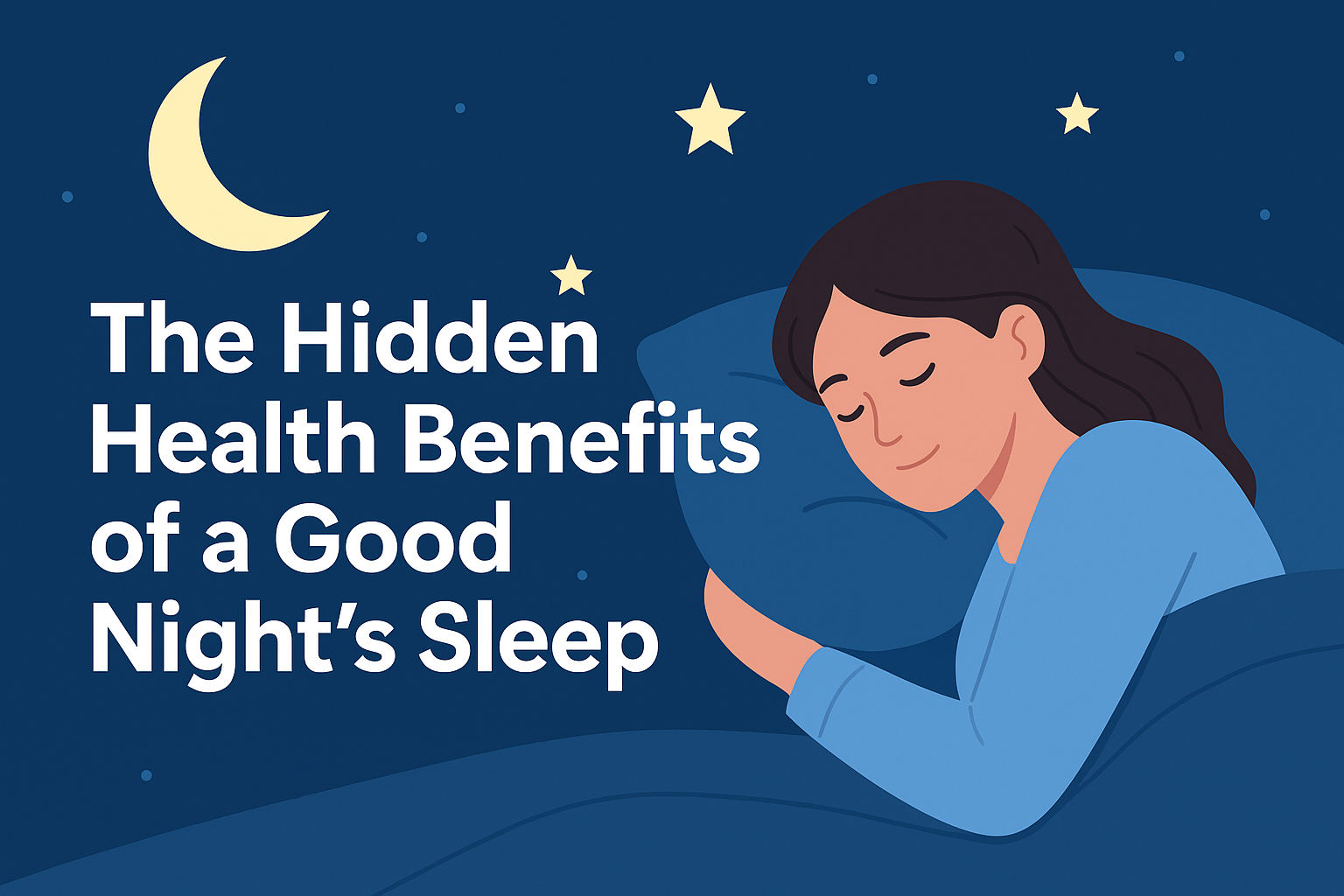
The Hidden Health Benefits of a Good Night’s Sleep
- Brain Detox and Cognitive Clarity
Brain stays active during sleep and excretes waste products through a special drainage system. This in turn sharpens memories, helps with learning, and stimulates creativity. - Emotional Resilience and Mood Stability
A restful night helps regulate emotions and fortifies mental resilience. Consistent inadequate sleep is strongly tied to anxiety, depression, irritability, and frequent mental distress. One large-scale study found individuals sleeping six hours or less were about 2.5 times more likely to have persistent mental distress.
- Metabolic Harmony and Weight Management
Sleep is essential for regulating metabolism. Poor sleep disrupts hormones like leptin and ghrelin—leading to increased hunger and cravings—while compromising insulin sensitivity, raising the risk of type 2 diabetes.
- Cardiovascular and Heart Health
Even modestly short sleep (six to 5–7 hours) increases cardiovascular risk factors, including high blood pressure and heart disease. Additional heart benefits may be linked to going to bed between 10 and 11 p. m.
- Enhanced Immune Defense
Quality sleep strengthens immune memory (helping your body fight off illness, and respond better to vaccinations). It also reduces persistent inflammation—a contributor to many chronic conditions.
- Athletic Performance and Physical Recovery
Whether you’re an athlete or just active, sleep fuels optimal performance. It sharpens reaction times, supports muscle repair, and enhances endurance.
- Strategic “Sleep Banking”
If you do have reason to suspect that you will have trouble sleeping ( e. g. travel or period of intense work ), “sleep banking “ by getting more sleep before possible will help you stay awake, help you recover, and reduce fatigue.
Scientific Spotlight
Sleep and physical health — Lack of sleep can make emotional nausea and exacerbates psychiatric risks. It also elevates amygdala activity, making emotional regulation more difficult.
Sleep and mental health — Meta-analysis supports improving sleep quality delivered medium to large improvements in depression, anxiety, and obsessive thinking.
Final Thoughts
Sleep isn’t just rest—it’s restorative, regenerative, and foundational to wellness. From boosting immunity to regulating metabolism, supporting heart health, and empowering the mind—getting that refill of rest tonight should be as involuntary as a good diet or workout.
Actionable tips to optimize sleep:
- Aim for 7–9 hours nightly, with many studies suggesting around 7 hours as ideal. The Economic Times
- Keep a consistent sleep schedule—even on weekends—so your body clock stays in sync. Tom’s Guide
- Wind down screen-free before bed—blue light suppresses melatonin and disrupts your internal clock. Wikipedia
- Sweet dreams aren’t just nice, they’re needed.
